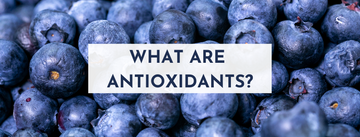Peptic ulcers are like sores in your stomach or the top part of your small intestine called the duodenum. They can make your stomach hurt, often with a burning or gnawing feeling. Usually, medications help treat them, unless there's bleeding. There are two main reasons why you might get these ulcers, and it's important to find out which one is causing yours to treat it correctly.
What is a Peptic Ulcer?
A peptic ulcer is a problem that causes open sores to form in the lining of your digestive system. The term "peptic" refers to the connection with digestion and comes from "pepsin," a major digestive enzyme produced by your stomach.

Source: Peptic ulcer disease (PUD) is a common ailment, affecting many people.
Your stomach juices contain pepsin and stomach acid, which are important for breaking down food during digestion. Some of these juices also move into the first part of your small intestine, called the duodenum. These juices are very strong and can be corrosive.
Normally, your digestive system is protected by a strong mucous lining that prevents damage from these substances. However, in peptic ulcer disease, this protective layer fails, and the digestive juices start to corrode the lining.
An ulcer is a sore that goes through all three layers of this protective lining (mucosa). Most peptic ulcers happen in your stomach or duodenum because that's where the stomach juices are most active. Sometimes, they can also occur in other parts of your digestive system, although this is less common.
Types of Peptic Ulcers
Peptic ulcer disease mainly affects the stomach and duodenum, with the following distribution:
- Duodenal ulcers make up about 80% of peptic ulcers.
- Stomach ulcers make up about 20% of peptic ulcers.
Under uncommon circumstances where stomach juices pass through other parts of your gastrointestinal tract, you can develop peptic ulcers in these areas:
- Esophageal ulcer: Chronic acid reflux, where stomach acid flows back into the esophagus, may lead to an ulcer in the esophagus due to the lesser protection of its lining against acid compared to the stomach lining.
- Jejunal ulcer: Ulcers can form in the jejunum, the middle part of the small intestine, as a result of surgery connecting the stomach to the jejunum (gastrojejunostomy). This is also known as a stomal ulcer, marginal ulcer, or anastomotic ulcer.
Symptoms of Complications
In some cases, people may not experience symptoms until peptic ulcer disease leads to additional complications, particularly if left untreated for an extended period. Without treatment, ulcers may cause bleeding or perforation (a hole) in the gastrointestinal (GI) tract.
Symptoms of upper gastrointestinal bleeding may include:
- Presence of blood in stool (poop)
- Black, tarry stool
- Vomiting that resembles coffee grounds
- Dizziness or faintness
- Paleness
- Rapid heart rate
Symptoms of gastrointestinal perforation may include:
- Sudden, sharp, and severe abdominal pain
- Abdominal swelling and tenderness upon touch
- Fever and chills
- Long-term untreated peptic ulcer disease can lead to continuous healing and recurrence of ulcers. Scarring and swelling from untreated ulcers in the GI tract can obstruct the passage of food.
Symptoms of gastrointestinal obstruction may include:
- Abdominal bloating, swelling, and pain
- Nausea and vomiting
- Loss of appetite and weight loss
- Decreased bowel movements and constipation
Read more about Peptic Ulcer Disease Symptoms
What Causes a Peptic Ulcer?
Your gastrointestinal tract has a protective lining that shields it from digestive acids and enzymes, especially in your stomach and duodenum. Peptic ulcer happens when something disrupts these natural defenses.
It usually takes a persistent problem to weaken these defenses enough for an ulcer to form in your stomach or duodenum.
Scientists have pinpointed two main causes responsible for almost all cases of PUD:
- H. pylori infection: This common bacterial infection can live in the stomach or duodenum of almost half the world's population without causing issues. However, if it grows excessively, it can trigger inflammation in the gastrointestinal lining. Chronic inflammation can weaken the lining's ability to repair itself, and the bacteria may also directly damage the lining.

Source: H. pylori infection can be passed from person to person.
- Overuse of NSAIDs: Nonsteroidal anti-inflammatory drugs like aspirin and ibuprofen are commonly used pain relievers available without a prescription. Taking these medications too frequently or in high doses can affect the chemistry of your stomach and duodenum, inhibiting the prostaglandins needed for repairing damage to the gastrointestinal lining.
Other common causes of peptic ulcer include:
- Other infections
- Ischemia (loss of blood supply)
- Severe physiological stress from a life-threatening illness or injury
- Chemotherapy or radiation therapy
- Zollinger-Ellison syndrome
- Crohn’s disease
- Stomach cancer
Peptic ulcers can also occur in the jejunum, the middle part of the small intestine, after gastric bypass surgery connect the stomach directly to the jejunum. This bypass essentially turns the jejunum into the new duodenum but without the same protective lining.
Additionally, chronic inflammation (esophagitis) in the esophagus can lead to ulcers. Chronic acid reflux is the most common cause, but infections, medications, and autoimmune diseases can also contribute to esophagitis.
Treatments for Peptic Ulcer
First-line treatment for peptic ulcers involves a combination of medications to reduce stomach acid and protect and repair the damaged tissues. If there's an underlying infection, antibiotics will also be necessary.
Here's an overview of the medications commonly used:
- Antibiotics: These are prescribed to kill bacterial infections like H. pylori, which is a common cause of peptic ulcers.
Common include:
- Doxycycline.
- Metronidazole.
- Clarithromycin.
- Amoxicillin.
- Cytoprotective agents: These medications coat and protect the lining of the stomach and duodenum while they heal.
Examples include:
- Sucralfate
- Misoprostol
- Bismuth subsalicylate.
- Histamine receptor blockers (H2 blockers): These drugs reduce stomach acid production by blocking the signals that trigger its release.
Common examples:
- Famotidine
- Cimetidine
- Nizatidine.
- Proton pump inhibitors (PPIs): PPIs not only decrease stomach acid but also help to heal the mucous lining by providing a protective coating.
Examples include:
- Esomeprazole
- Lansoprazole
- Omeprazole.
- NSAID alternatives: If you typically use NSAIDs for pain relief, you'll need to switch to alternatives like acetaminophen, which doesn't have the same damaging effects on the stomach lining.
Medications
Medical procedures may be necessary for complicated or bleeding ulcers. During an endoscopy exam, providers can treat bleeding ulcers by cauterizing the wound or injecting medication.
Perforations may require stitches to repair. If an ulcer causes an obstruction, procedures like stomach suctioning or surgery may be needed to reopen the blocked area.
In Summary
Peptic ulcers can get better if the reasons that led to them are addressed. However, figuring out the exact cause typically requires a diagnosis from a healthcare professional. If the culprit is an H. pylori infection or another medical issue, treatment is necessary to resolve it.
In cases where NSAIDs were the sole cause and you've stopped taking them, your ulcer might heal on its own. Still, it's important to consult a healthcare provider for a proper diagnosis. Using NSAIDs could potentially worsen an H. pylori infection that was previously harmless, so it's essential to rule out this possibility.








